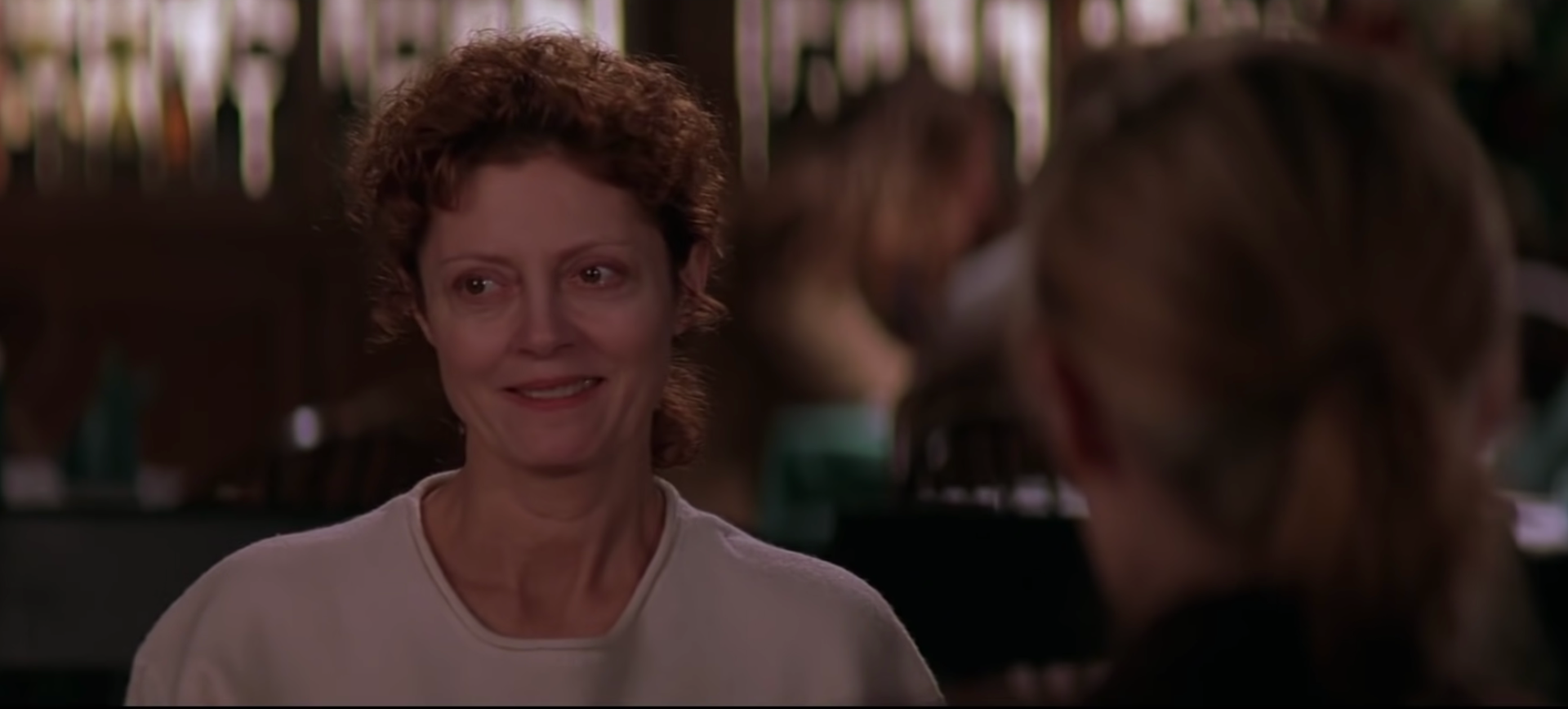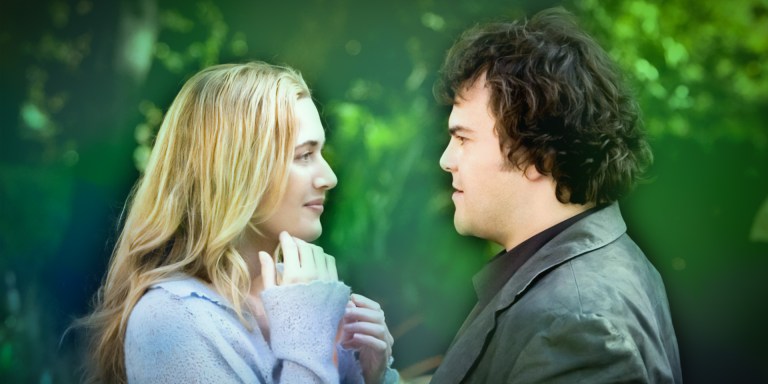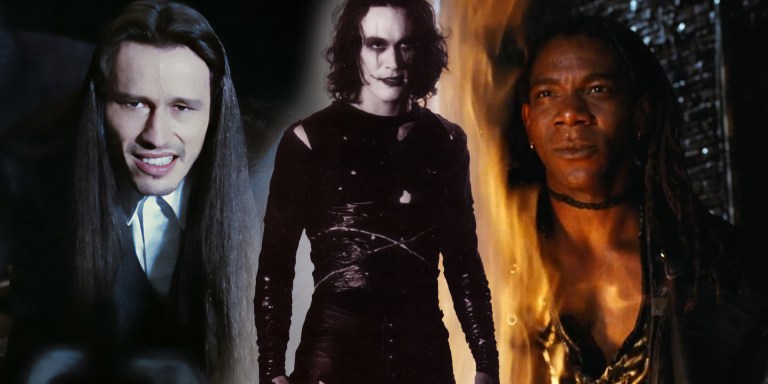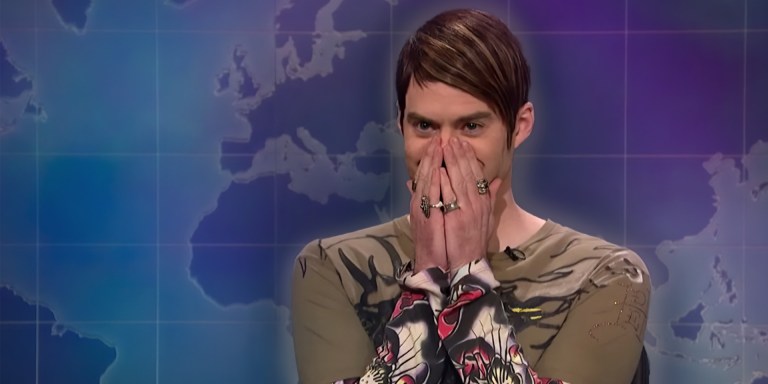Some films know how to leave you forlorn — crying for days on end over characters who become friends, who (within a couple of hours) become an unshakeable source of agony and heartache. Here are the top nine most tear-jerking scenes in movie history.
Sickness. Sacrifice. Grief. Protection. Acceptance. These are a mere fraction of the abundant themes that contribute to the most heartbreaking cinematic moments: the on-screen spectacles that leave viewers in shambles, tears running down their faces, saturating the popcorn in their laps. So, if you need a good cry — an excuse to let out all the strife you’ve been shoving down — here are the movie moments to look back on.
Spoilers ahead!
“You can have their future” | ‘Stepmom’ 1998
Susan Sarandon and Julia Roberts star across one another in this melodramatic film that unapologetically bypasses subtlety on the road to sappy (but we’re not mad about it). Sarandon plays Jackie — who is “mother earth incarnate,” according to Roberts. She’s the instinctive caretaker. She knows her children’s quirks and desires, their wants and needs as if they were her own. Roberts is the stepmom, Isabel — with unorthodox parental methods that add a bit of flair to the old-school formulas. Yet, when Jackie gets cancer, she must accept that Isabel will become her children’s primary caretaker, culminating in an unforgettable moment of acceptance and vulnerability.
Isabel reveals her greatest fear — that on their daughter’s wedding day, the pure bliss the young bride should feel will be dampened, as she wishes her mom was there. And Jackie, in a moment of unparalleled vulnerability, reveals her greatest fear — that her daughter won’t even be thinking about her. The moment ends with a sagacious line of dialogue, in which Sarandon says, “I have their past, and you can have their future.”
“Give my daughter the shot!” | ‘Terms of Endearment’ 1983
Shirley MacLaine delivers a scene so iconic as Aurora in Terms of Endearment that it was even parodied by Fran Drescher in The Nanny. It’s simple: her daughter is sick and dying, and it’s time for the nurses to provide the shot that helps with her pain. MacLaine’s character cannot save her daughter. And, at this moment, she grabs onto one action she has any semblance of control over.
She cannot change the future, but she can make these last moments as painless as possible. And, when the nurses don’t immediately hop into action, she screams with fervor, blowing the roof off the hospital until she sees them tend to her daughter. The pretense of decorum that she maintains as a cold and polished woman finally evaporates. It doesn’t help that the duo have a complicated past — a relationship marked by Aurora’s passing judgments, snide asides, and unreachable expectations. Can she right all the wrong she has done as her daughter lay in a hospital bed?
“Take my little girl” | ‘Sophie’s Choice’ 1982
No parent should ever have to choose which of their children deserves to live, and that is exactly what a Nazi forces Sophie (Meryl Streep) to do in Sophie’s Choice. He tells her, “You may keep one of your children.” She holds on tightly to her baby girl and son, explaining that she cannot choose. How is a mother supposed to send one of her children to their immediate death via gas chamber? Yet, if she doesn’t choose, she loses both. She fights. She begs. She pleads. She panics. Tears bubble in her eyes, as the Nazi verbally berates her, threatening to take both, and, at last, the words slip out of her mouth: “Take my little girl.”
Toni Collette wailing in agony | ‘Hereditary’ 2018
Hereditary may be a horror movie, but its dramatic undertones and portrayal of grief warrant its place on this list. Toni Collette, upon discovering her daughter has died — her head decapitated by a telephone pole, and what remains of her body left in the car — accesses a level of authentic agony rarely seen on screen.
In an Oscar-worthy, yet utterly snubbed performance, she wails, her voice cracking with disbelief, “Oh god! It hurts too much,” she yells. A mix of grief, shock, and an inability to imagine a life without her daughter surge to the surface, as she utters, “I just need to die.” It’s a jaw-dropping performance. A tearjerking moment that instantaneously supplants the film’s former eerie atmosphere with one of deafening loss. Within moments, the tone shifts seamlessly from suspense to sorrow. And it’s all thanks to a heartwrenching Collette.
“I wanna know why” | ‘Steel Magnolias’ 1989
“I’m fine! I can jog all the way to Texas and back, but my daughter can’t. She never could…I wanna know why. I wanna know why Shelby’s life is over…” Parents are not supposed to lose their children — it’s not the order of things. You call someone who loses their spouse a widow, a child who loses their parent an orphan. Yet, there remains no word for a parent who loses their child, and that’s because it is an act against nature. A brutal loss one cannot prepare for.
In this scene, Sally Field wails in agony on the day of her daughter’s funeral. “It’s not supposed to happen this way,” she says, “I’m supposed to go first.” She would climb into that coffin and take her daughter’s place if she could, but she is left on this earth to carry on. Expected to continue living, but how? Field effortlessly transitions from sadness to anger — just as grief plays out in various ways — so does Field’s Golde Globe-nominated performance. In one moment, tears run down her face as her body seems lifeless. Seconds later, her fury bubbles as her body becomes jittery with the adrenaline of her rage.
Guido’s final performance | ‘Life Is Beautiful’ 1998
What would you do to shield your innocent child from the horrors of a concentration camp? What would you do to preserve his wonder and innocence in the face of unbridled cruelty and abuse? Would you consider convincing him that it’s all a game? Guido makes his son, Goisue, believe that they earn points by adhering to strict rules, performing tasks, and hiding from the guards. Guido’s relentless optimism — his feigned sense of nonchalance and jocularity is at once awe-inspiring and tragic. He is deathly afraid but keeps his fear from his child.
In the end, Guido puts on one final performance for his son. He walks to his death. He winks before employing an exaggerated, circus-like gait. He knows he’s about to be shot, but he can’t let his son (who’s peeking out from his hiding place) see him falter. The movie shows the sacrifices a parent will make — and the strength they can summon — when their child’s spirit is on the line.
“I hate you!” | ‘Room’ 2016
A small room with his mother. In captivity. A daily regimen of exercise and simple meals. Conversations only ever between two. It’s all Jack knows. Ma (Brie Larson) has protected him from the truth – from the beauty of the outside world. She doesn’t want him to understand they are trapped — being held captive by his mother’s kidnapper. Yet, when he comes of age, so does the truth, as he is going to help them escape.
Ma concocts a plan. She will make their captor believe Jack has died and wrap him up in the area rug on the floor (for him to take away). Once in the truck, Jack will roll out of the rug, jump out when the car stops, and begin to yell for help. Yet, for this to work, the two have to practice rolling him up real tight. They do it over and over again. He’s moving too much. Not still enough. Not stiff enough. She gets angry. He gets angry. And finally, those dreadful words, as tears roll down his face, come out of his mouth — “I hate you!” Yet, this “I hate you” is so much more loaded than the angsty teenager’s you-don’t-get-me-esque-spiel. Jack does not understand the depth of the situation. He is not old enough to see that this is not a passing phase for his mother, but a last-ditch effort to create a life for the two of them. His innocence and aggravation combined with her commitment and protective instinct ia simply too much to withstand. Prepare for waterworks.
“Every day I wake up, and I hope you’re dead” | ‘Marriage Story’ 2019
“Every day I wake up, and I hope you’re dead. Dead like if I could guarantee Henry would be okay, I’d hope you get an illness and then get hit by a car, and die.” Bitter divorces bring out the worst in people. Divorces with years of baggage at the helm — unspoken grievances, festering disappointments swept under the rug, parental conflicts never resolved. That’s what’s at play in Marriage Story.
Charlie (Adam Driver) and Nicole (Scarlett Johansson), who once had the most tender relationship, have become enemies at the fray. They’ve both hired top-notch lawyers to drown the other. It’s malicious. It’s petty. It’s vindictive. And, at this moment, Charlie has had enough, and he utters words he can never take back. At this moment, he wants to inflict the most pain imaginable on his ex-wife, and while he may not mean these words, he is seeing red and merely yearns for her undoing. He sees a route to “win” this battle they have both already irreversibly lost, and he takes it.
This scene is less tear-jerking in its sadness and more shell-shocking. You stare at the screen frozen. Unable to process any dialogue that follows suit. Your eyes bulge at the extent of the vitriol spewed. It’s soul-shaking poignancy via Noah Baumbach’s deft dialogue and Driver’s authentic mix of depletion, anger, and sorrow.
Mufasa’s death | ‘The Lion King’ 1994
For an animated children’s movie, Disney really tugs at the heartstrings with this one. Mufasa falls to his death in slow-motion, after his brother Scar aids in his destruction. Mufasa used all his strength and power to climb to the edge of that cliff, as Scar looked on with condemnation and disdain. Scar then contributes to his brother’s demise before snarkily uttering, “Long live the King.” Yet, it is Simba’s reaction to his father’s death that is unbearable.
Simba goes to look for his father, yelling “dad” among the fog, only to stumble upon Mufasa’s lifeless body. Simba nestles his head into his father’s nose, and begs him to “get up,” but nothing happens. He pulls on his ear. He cries for help, until finally accepting his father’s death and cuddling up next to him before Scar’s inevitable arrival. A child should not lose a parent before they come of age. Who is supposed to teach him to be king? Who will be his father now?
Honorable Moving Mentions:
-
- Up (2009): The opening scene, during which you watch a man fall in love with and lose his beloved wife all in montage format.
- A Monster Calls (2017): When Conor, whose mother has been sick for quite some time, finally admits to himself that he just yearns for his agony to be over (virtually admitting that his mother’s death would bring some peace from the tragic anticipation).
- Jojo Rabbit (2019): When Jojo finds his mother hanging for her crimes and grabs her legs, squeezing on tight to the perfect mom he has lost. He tries to tie her shoes but fails, for he still needs her. He’s still not grown.
- Marley & Me (2008): When the dog dies (this needs no further explanation).
- Avengers: Endgame (2019): When Hawkeye and Black Widow fight over who will sacrifice themselves AND when Tony Stark sacrifices himself to bring back half of humankind.
- Beaches (1988): When Bette Midler’s “Wind Beneath My Wings” plays as Hillary dies on the beach. Whether it’s the music, the moment or both is anyone’s guess.








